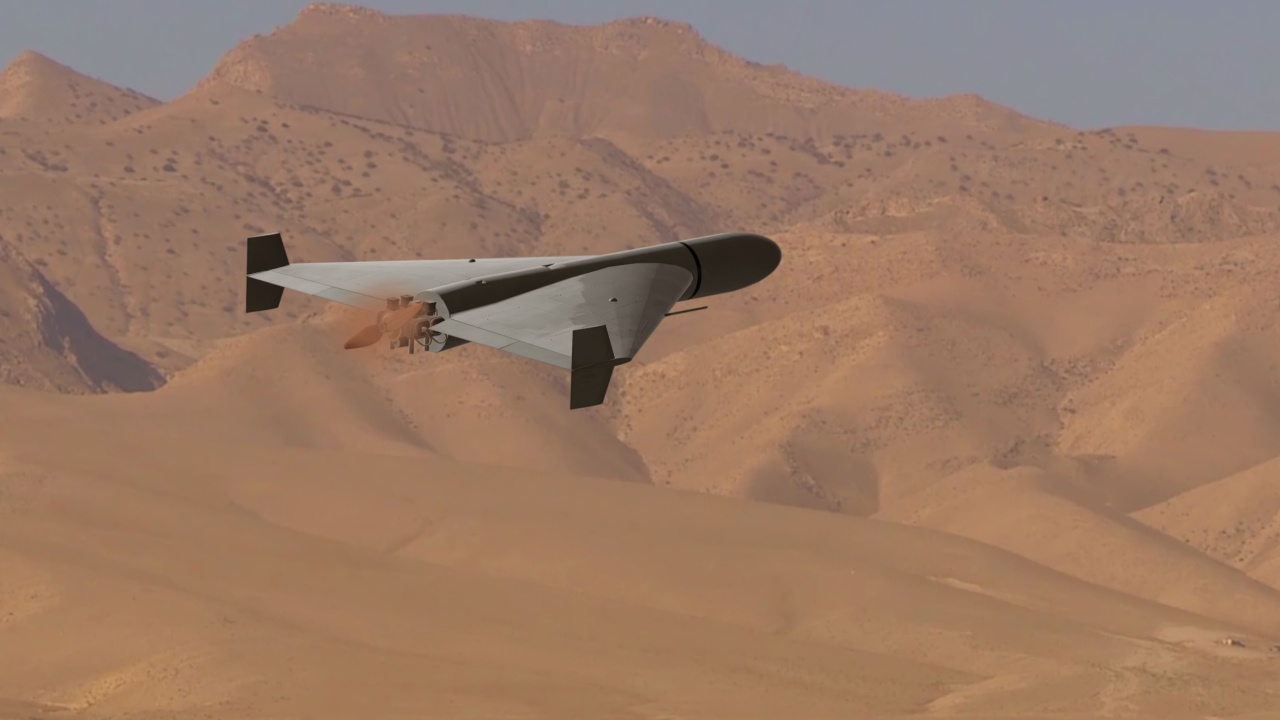Politics
Iraq Faces Pressure to Counter Iranian-Backed Drone Attacks

Recent drone attacks in northern Iraq have intensified concerns regarding the influence of Iranian-backed militias in the region. On July 30, a kamikaze drone crashed near Makhmour in the autonomous Kurdistan Region, with Kurdish counter-terrorism forces reporting no casualties. This incident is part of a troubling trend, as nearly twenty similar attacks have targeted energy infrastructure throughout northern Iraq in July alone.
The escalation of these drone attacks has drawn the ire of U.S. officials, who are dissatisfied with Iraq’s response to this growing threat. On July 22, U.S. Secretary of State Marco Rubio communicated directly with Iraqi Prime Minister Mohammed Shia al-Sudani. Rubio highlighted that these attacks specifically targeted energy facilities operated by U.S. companies, emphasizing the need for the Iraqi government to hold the perpetrators accountable and prevent future incidents. He also discussed the importance of ensuring that salaries are paid in the Kurdistan Region and the necessity to resume oil exports through the Iraq-Turkey pipeline.
These drone strikes exemplify the challenges Baghdad faces in controlling armed groups within its borders. Authorities in the Kurdistan Regional Government have attributed the attacks to Iranian-backed militias within Iraq’s Popular Mobilization Forces (PMF). The State Department has echoed this concern, with Rubio stressing the dangers posed by the pending Popular Mobilization Commission bill in the Iraqi Council of Representatives. The proposed legislation could further entrench Iranian influence and empower militias that threaten Iraq’s sovereignty.
Historically, Iranian-backed militias have exploited their dual roles as paramilitary forces and independent militias to conduct operations both within Iraq and across the broader Middle East. A notable example is Kataib Hezbollah, one of the most formidable militias, which has been linked to the deaths of American service members in Jordan and the abduction of Princeton researcher Elizabeth Tsurkov in Baghdad in March 2023. These militias have also been responsible for strikes against U.S. forces in Iraq and Syria, alongside drone attacks aimed at Israel.
Despite having the means to rein in these militias, Iraq has refrained from taking decisive action. The power of these groups surged during the fight against ISIS, as a fatwa from Grand Ayatollah Ali al-Sistani encouraged young men to enlist. Once the war concluded, many of these militias chose not to disband, instead seeking to integrate into state structures.
The situation has reached a critical point, with U.S. Congressman Joe Wilson highlighting on July 29 the implications of U.S. taxpayer funding supporting Baghdad, which in turn funds militias that threaten Kurdish interests and U.S. troops. He declared, “This cannot be tolerated anymore,” indicating his intention to pursue prohibitive measures against funding to Iraq if these militias continue to operate unchecked.
The drone attacks coincide with Iraq’s efforts to exert pressure on the Kurdistan Region regarding salary payments and energy contracts. They also follow a significant conflict between Iran and Israel, suggesting a broader regional strategy where Iran and its allies in Baghdad leverage these militias to intimidate perceived U.S. partners in Kurdistan.
U.S. troops remain stationed in the Kurdistan region as part of the Combined Joint Task Force Inherent Resolve, which is focused on the anti-ISIS mission. The task force has a new commander who recently met with Iraq’s Prime Minister. It is in Baghdad’s interest to curtail militia attacks and collaborate with U.S. forces, yet Iraqi authorities have yet to demonstrate a willingness to confront these factions.
In light of recent setbacks for Iran in the region, including its diminished influence in Syria and Lebanon, Tehran appears increasingly concerned about maintaining control over its Iraqi proxies. The current environment presents a unique opportunity for Iraq. With Iran’s weakened position, it may be possible for Iraqi authorities to assert greater independence and dismantle the proxy model that has characterized the relationship between Baghdad and these militias.
As this situation unfolds, the ability of Iraq to regain control over its security landscape will be crucial not only for its own sovereignty but also for the stability of the broader region. The dynamics between Iran, its affiliated militias, and the Iraqi government will continue to shape the future of security in Iraq and its interactions with international partners.
-

 Lifestyle3 months ago
Lifestyle3 months agoLibraries Challenge Rising E-Book Costs Amid Growing Demand
-

 Sports3 months ago
Sports3 months agoTyreek Hill Responds to Tua Tagovailoa’s Comments on Team Dynamics
-

 Sports3 months ago
Sports3 months agoLiverpool Secures Agreement to Sign Young Striker Will Wright
-

 Lifestyle3 months ago
Lifestyle3 months agoSave Your Split Tomatoes: Expert Tips for Gardeners
-

 Lifestyle3 months ago
Lifestyle3 months agoPrincess Beatrice’s Daughter Athena Joins Siblings at London Parade
-

 World3 months ago
World3 months agoWinter Storms Lash New South Wales with Snow, Flood Risks
-

 Science3 months ago
Science3 months agoTrump Administration Moves to Repeal Key Climate Regulation
-

 Science2 months ago
Science2 months agoSan Francisco Hosts Unique Contest to Identify “Performative Males”
-

 Business3 months ago
Business3 months agoSoFi Technologies Shares Slip 2% Following Insider Stock Sale
-

 Science3 months ago
Science3 months agoNew Tool Reveals Link Between Horse Coat Condition and Parasites
-

 Sports3 months ago
Sports3 months agoElon Musk Sculpture Travels From Utah to Yosemite National Park
-

 Science3 months ago
Science3 months agoNew Study Confirms Humans Transported Stonehenge Bluestones









